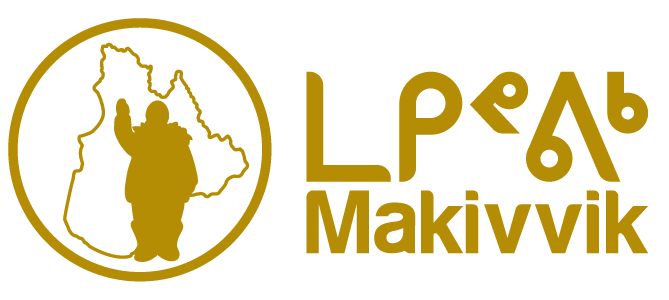By Stephen Hendrie
On Thursday, Dec. 10, 2020, Makivvik participated in an Indigenous and Northern Affairs (INAN) House of Commons Standing Committee meeting on the topic of food security in the North. The committee is studying ways to improve food security in northern communities. Due to the pandemic, the sessions were held virtual. Makivvik Executive Vice-President, Environment, Wildlife and Research (DEWR) Adamie Delisle Alaku made the presentation on behalf of then President Charlie Watt. He began by describing the Nunavik region for the 12 committee members from all the federal parties.
“Our region is bigger than the size of France. We have 15 Inuit communities on the shores of Hudson Bay, Hudson Strait, and Ungava Bay. Total Inuit population is just over 12,000. Think of it as an island. The only way to get there is by air year-round, or by ship in the summer months.”
Delisle Alaku explained why being located north of the 55th parallel is a major factor in this issue. “Our remoteness greatly affects our food security. While southern Canada benefits from a vast road and rail network, paid for by taxpayers, Inuit pay all taxes and yet the infrastructure gaps that exist in our airport facilities, and total lack of deep-sea ports, contributes to driving up our food prices, and food wastage.”
Food security exists when all human beings at all times have physical and economic access to sufficient, healthy and nutritional food enabling them to lead healthy, active lives. Food insecurity exists when an individual or family does not have access to sufficient food. According to the 2017 Aboriginal Peoples Survey 76 per cent of Inuit experience food insecurity.
“In the context of Nunavik, it is important to consider access to both traditional foods, and healthy store-bought foods in improving food security,” stated Delisle Alaku. Statistics were provided to illustrate how difficult it is for Inuit in the remote Nunavik region to afford healthy food, whether store-bought or from the land. The University of Laval cost of living study revealed in 2011 that groceries cost 81 per cent more in Nunavik compared to Quebec City. The 2016 Census reported median income for Inuit was $25,627 versus $79,328 for non-Inuit.
“So, if groceries cost 81 per cent more, and income is three times less than in the south, it all adds up to considerable food insecurity, and additional social consequences to physical and mental health,” concluded Delisle Alaku.
Despite programs such as Nutrition North Canada (NNC) which aims to reduce the high cost of living, it is not enough. Delisle Alaku described several additional measures in Nunavik to further assist Inuit. He provided an overview of the Nunavik Cost of Living Reduction Measures administered by the Kativik Regional Government. He listed the six programs that help reduce the cost of living: Elders assistance; Airfare reduction prog ram; Country Food Community Support Program; Household Appliance and Harvesting Equipment Program; Food and other Essentials Program; and the Gasoline Program. He noted that the government of Quebec committed to pay $115.8 million over six years starting in 2019 for these six programs.
In addition to these measures, there are grassroots, community, and regional initiatives to address food security. Delisle Alaku described the hydroponic containers in Kuujjuaq, and Inukjuak (The Growcer units as seen on the CBC’s Dragon’s Den). He summarized the Pirusiivik Project in Inukjuak to create a year-round greenhouse focussed on growing traditional plants and gardening. He highlighted the Family Houses in Puvirnituq, Kangiqsujjuaq, Salluit, Kangisualujjuaq, and Kuujjuaraapik. Most have a variety of food programs including cooking activities, meal sharing, and food boxes for people in need.
“For us, however, food from the south is only part of the picture when it comes to the food we eat,” said Delisle Alaku. “The food we hunt is just as important, if not more, because it not only feeds us physically it feeds us culturally, and spiritually as well.”
Inuit food security includes culture, health and wellness, and food sovereignty – Inuit decision-making power and management over food resources. Delisle Alaku informed the committee members that Inuit are members of numerous wildlife management committees.
“In addition, Makivvik has owned and operated the Nunavik Research Centre (NRC), based in Kuujjuaq, for decades. We conduct our own research directly on the country food we eat and control that information. That’s part of what we consider as Inuit Food Security.”
In concluding his presentation Delisle Alaku stated, “It’s clear many factors contribute to food insecurity in our region. While we appreciate programs such as Nutrition North Canada, and the Harvesters Support Grant Program from the federal side, you can see it takes combined efforts to address this issue. This includes the province of Quebec, the Nunavik organizations working together, grassroots projects, and additional assistance from outside the region.”
The other presenters at the Dec. 10 meeting were Natan Obed, President of Inuit Tapiriit Kanatami (ITK), Johannes Lampe, President of the Nunatsiavut Government, James Eetoolook Acting President of Nunavut Tunngavik Inc. (NTI), and Hannah Uniuqsaraq, Chief Administrative Officer of NTI.
Anytime one presents at Parliament, it makes a difference. The testimony is now available online, and can be used in future reports, and to support future policy making decisions. It enables members of Parliament, members of the Senate and federal government employees (and the general public) to learn more about the region and the needs of Nunavik Inuit.
The committee is obliged to report back to the House of Commons with their findings. The government may then table a comprehensive response to the report. The Dec. 10 meeting can be viewed online at: http://bit.ly/3rPFJzj




